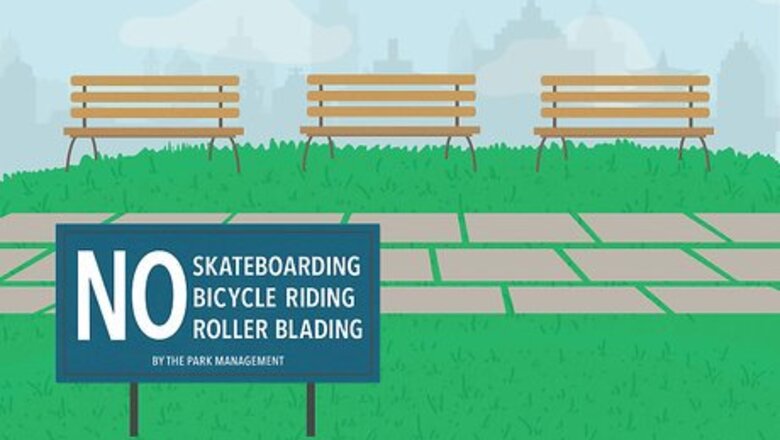
views
Researching the Topic
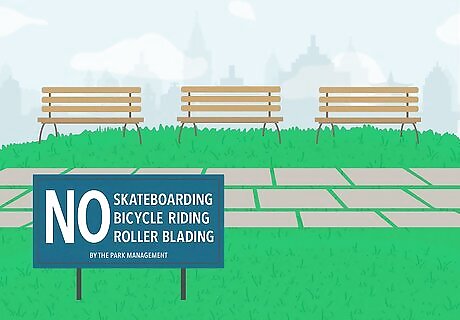
Read the signs in the area you're in. For simple circumstances, answering your question could be a simple matter of paying attention to your surroundings. Very often, signs say if certain activities are prohibited. For example, if you're wondering if skateboarding is allowed in the park, see if there are any signs around saying so.
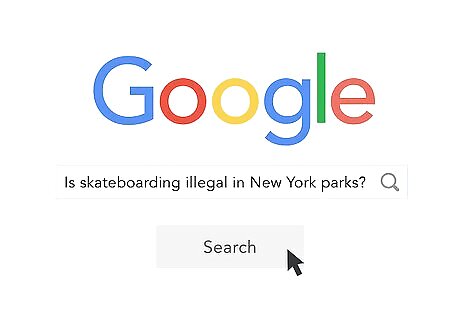
Do an internet search. One of the simplest ways to find out if something is illegal is typing it into an internet search engine. When typing, enter the activity you're planning on doing and keywords like "illegal," "legality," or "legal." Also make sure to enter the area you'll be operating in, since localities often have different laws on the books. It's possible you'll come across one or more hits indicating whether or not the act you're considering is legal. Keep in mind that you may come across a lot of unreliable sources with this method. If you get an answer from a non-official website, you should still verify the information with a government site or legal expert before proceeding.
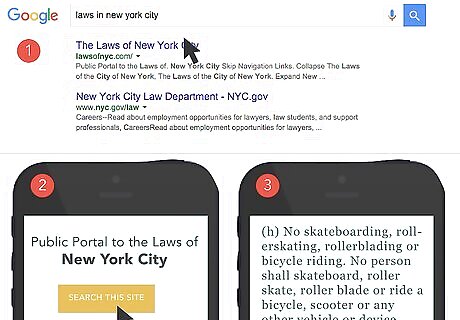
See if your locality has digitized its law books. Many local governments have their law books printed and easily available on the internet. Try doing an internet search using keywords like "laws in..." and then the specific area. If you're lucky, the document will be searchable, so you can quickly type in a few keywords and find the information you're looking for. If your local laws aren't available on the internet, they will still be available on paper. Try contacting your city or town hall and inquiring about looking up a certain law. Someone may be able to look it up for you, or you may have to go down yourself and look it up.
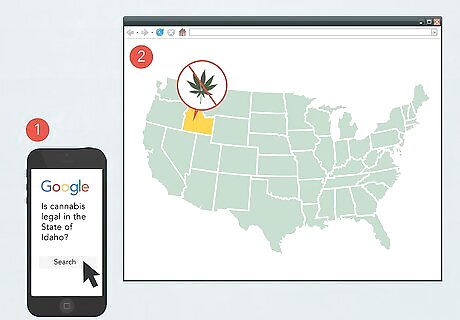
Investigate your state laws. Sometimes, the activity in question is a matter of state law. In this case, you'll have to take your investigation to the next level up and investigate your state's laws. Click here for links to all 50 states and their laws and regulations.
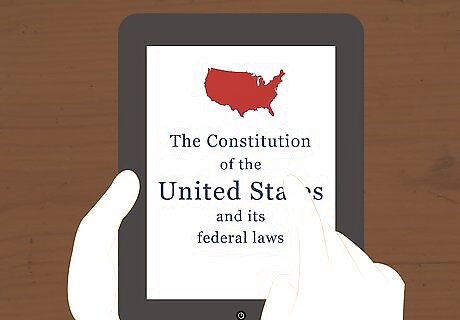
Search the national laws of the United States. If you have no luck locating the activity in state or local laws, you'll need to go one more level and look at federal law. There are several tiers of federal law. Click here for the US constitution, which is considered the supreme law of the country. Of course there are many more laws in the country than those named in the Constitution. Click here for a searchable registry of laws in the US.
Asking Professionals
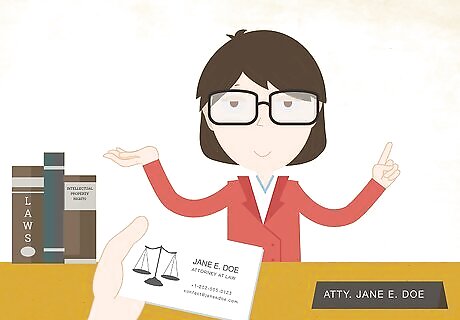
Consult a lawyer. Lawyers receive extensive legal training and will either know if something if illegal, or have the resources to investigate and find out. If you're having trouble finding out if something is legal or not, try asking a lawyer. Make sure whichever lawyer you consult operates in the area you're planning on taking this particular action, since laws change based on the particular locality. If you know a lawyer personally or have on in your family, use that resource. If you don't personally know a lawyer, see if any firms in your area offer free consultations. Lawyers will sometimes give a free introductory consultation, hoping to acquire new clients.
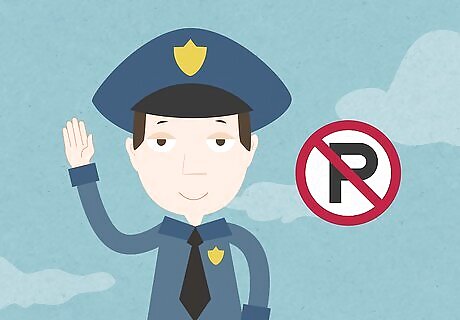
Ask a police officer. While police don't receive the same legal training that lawyers do, they're very well acquainted with local laws and can probably answer any questions you might have. Almost all police departments have a "Contact Us" section on their website, which will direct you to the phone number of the precinct. Utilize this to ask the local department if something is illegal.
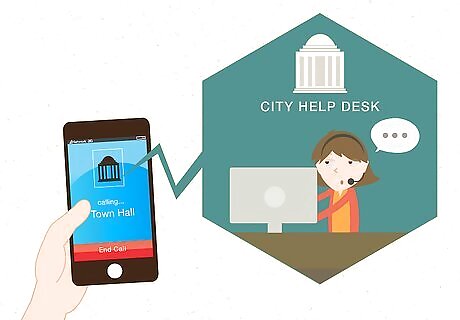
Inquire with the staff at your local government building. Even if local laws aren't printed online, they will be available at city/town hall or the courthouse. You can call this location and inquire with the staff in the office if they are aware if something is illegal. They may know off the bat, or be able to provide you with the resources you need to find out.




















Comments
0 comment